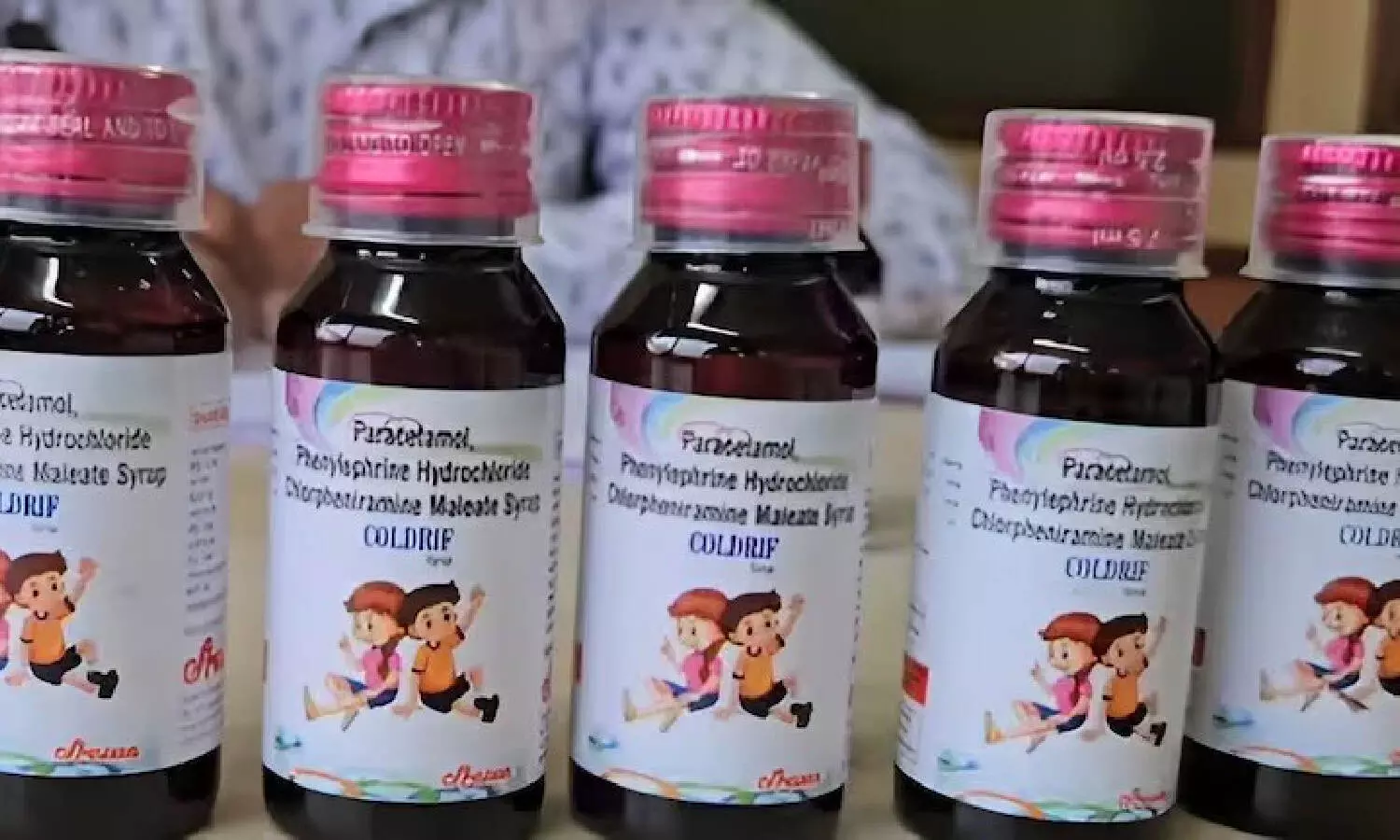Cough syrup deaths: Hyderabad medics question doctor’s arrest, cite lapses in pharma quality checks
The Tamil Nadu-based company had manufactured the Coldrif cough syrup, contaminated with toxic diethylene glycol (DEG), linked to the deaths of 21 children in Madhya Pradesh.
By - Newsmeter Network |
Cough syrup deaths: Hyderabad medics question doctor’s arrest, cite lapses in pharma quality checks
Hyderabad: The arrest of G Ranganathan, owner of Sresan Pharmaceuticals, has reignited nationwide debate on accountability in India’s drug regulation system.
The Tamil Nadu-based company had manufactured the Coldrif cough syrup, contaminated with toxic diethylene glycol (DEG), linked to the deaths of 21 children in Madhya Pradesh.
While police have taken the manufacturer into custody, doctors in Telangana have questioned why medical practitioners were targeted earlier in the investigation, calling it ‘a diversion from the real cause.’
‘Doctors prescribe, but do not produce’
“The supply chain of a drug passes through several regulated hands before reaching a patient,” said Dr Sivaranjani Santosh, a Hyderabad-based paediatrician, speaking to NewsMeter.
“When children die due to contamination, the cause lies in manufacturing, testing, and approval, not in the act of prescribing. Doctors prescribe based on approved formulations, not private lab tests.”
Several paediatricians across Hyderabad have echoed this concern, arguing that the arrests of doctors for prescribing the product were misplaced.
“If a medicine cleared by state drug authorities turns out to be toxic, that points to a regulatory collapse. The punishment must fall where the negligence begins,” said Dr Ramesh Babu, senior consultant paediatrician.
Investigation in Madhya Pradesh, arrest in Tamil Nadu
According to officials, a seven-member team from the Madhya Pradesh police arrested G Ranganathan in Kanchipuram earlier this week. He is expected to be produced before a Chennai court, after which investigators will seek a transfer remand to Madhya Pradesh for further questioning.
The arrest follows confirmation from State laboratories that samples of Coldrif contained dangerous levels of diethylene glycol, a chemical used in industrial applications but known to cause kidney failure and death when ingested.
A pattern of regulatory failure
The Coldrif case is the latest in a series of drug contamination incidents that have shaken public confidence in India’s pharmaceutical oversight.
Experts say that, unlike formulation errors, DEG contamination typically occurs due to poor quality control or the use of non-pharmaceutical grade raw materials such as glycerin or propylene glycol.
Dr M Naveen Kumar, assistant professor of pharmacology at a government medical college in Telangana, said the case underscores chronic gaps in testing and surveillance.
“Most small- and medium-scale manufacturers rely on local suppliers for solvents. Unless every batch is tested at a certified laboratory before release, there’s always a risk. These lapses cannot be fixed by scapegoating doctors.”
Telangana response and safety advisory
Following the deaths in Madhya Pradesh, the Telangana Drugs Control Administration issued an advisory urging healthcare facilities and pharmacies to immediately stop using or selling Coldrif syrup, particularly batch SR-13. Officials said random inspections are being conducted across districts to identify and recall any remaining stock.
State Health Department sources indicated that further coordination with the Central Drugs Standard Control Organisation (CDSCO) is underway to tighten inter-state quality checks, especially on syrups distributed through smaller pharmaceutical firms.
Paediatric community seeks systemic reform
Paediatricians warn that the crisis must lead to structural changes in how India regulates smaller pharmaceutical units.
“The tragedy is not only about one company or one batch,” said Dr Santosh.
“It’s about how testing, certification and recall mechanisms function, or fail to. Unless state drug inspectors have both independence and accountability, such incidents will keep recurring.”
She added that the profession is already under intense pressure from parents, media and the public. “To treat the prescribing doctor as a criminal, while the manufacturing and approval chain goes unchecked, is deeply unfair.”
The road ahead
Investigators in Madhya Pradesh are expected to question Ranganathan regarding the sourcing of raw materials, batch testing protocols and internal quality controls at Sresan Pharmaceuticals. Parallel probes have been launched into whether regulatory officials overlooked past compliance warnings.
Meanwhile, public health experts stress that the case should serve as a wake-up call.
“Every child’s death is a failure of oversight, not just of one individual,” said Dr Kumar. “Accountability must start from the top of the supply chain, not the end of the prescription pad.”